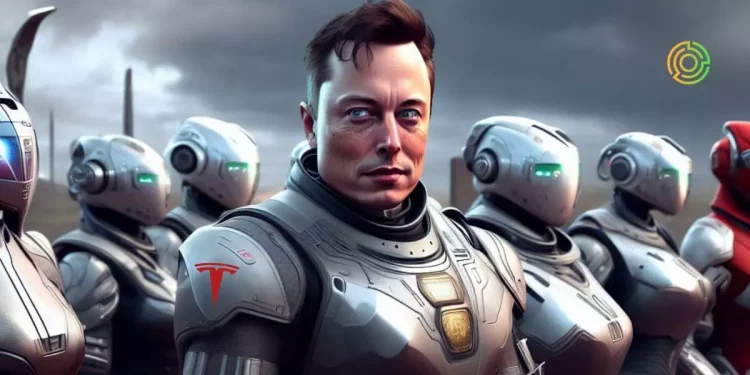Last night, Elon Musk engaged in a captivating interview on Twitter, sharing his thoughts on autonomous cars and their impact on Tesla.
The interview drew an audience of over 40,000 people, eager to hear Musk’s vision for the future of transportation.
Robo Cabs: The Future of Autonomous Transportation?
Elon Musk introduced the concept of “robo cabs” during the interview, likening them to autonomous Ubers. According to Musk’s estimates, a Tesla autonomous car could operate for approximately 50 hours a week, a substantial increase compared to the current 10-hour utilization.
This extended utilization would unlock significant value for car owners as their vehicles could generate revenue as cab services when not in use.
The Business Model Behind Robo Taxis
A crucial aspect discussed in the interview was the business model that would support robo-cabs. Musk explained that car owners would receive a share of the revenue generated by the autonomous cab service.
Although he did not specify the exact proportion, he mentioned possible revenue splits like a 50-50 or a 70-30 split. However, Musk emphasized that Tesla’s cars would be exclusive to Tesla’s network, ensuring the company’s substantial return from the robo-cab revenue.
Economic Potential and Profit Margins
Musk underscored the immense economic potential of robo-cabs by stating that Tesla could generate two to three times the original retail value of the car through revenue from this service.
Drawing parallels with the software industry, Musk suggested that profit margins could reach an impressive 70% or more, thereby fueling substantial cash flow for the company.
Experts such as Kathy Woods of Arkinvest support this optimistic outlook.
The Quest for Full Autonomy and Challenges
Throughout the interview, Musk addressed the pursuit of achieving full autonomy for Tesla’s vehicles. While acknowledging that this goal has not yet been realized, he expressed confidence that it would be performed in the near future.
Tesla’s recent tests have demonstrated autonomous vehicles operating for several days without human intervention in complex areas such as Austin and San Francisco.
Despite acknowledging the challenges, Musk remained optimistic about the prospect of attaining full autonomy soon.
The Implications of the Inflation Reduction Act
The Inflation Reduction Act, signed into law by President Biden on August 16, 2022, represents a significant milestone in the United States’ efforts toward clean energy and climate change.
The act aims to establish the nation as a global leader in clean energy technology, manufacturing, and innovation, while also reducing energy costs for families and small businesses.
During the interview, Musk discussed how this law could impact Tesla’s business. He highlighted the potential benefits in terms of earnings per share, as Tesla focuses on clean energy solutions aligned with the objectives of the Inflation Reduction Act.
The Challenge of Leading Multiple Companies
Toward the end of the interview, Musk reflected on his role at both Tesla and Twitter. He revealed his approach of delegating operational tasks to trusted executives, allowing him to focus on areas of his expertise and passion, such as product development and advanced technology.
Musk emphasized the importance of productivity and the need to work in person to maximize it.
Conclusion
Elon Musk’s insights on the future of autonomous cars and the impact on Tesla provide a glimpse into a world where robo cabs become a reality.
With the potential to transform transportation and generate significant economic benefits, the path to full autonomy holds great promise.
As Tesla continues its pioneering efforts in this field, we eagerly anticipate the day when autonomous vehicles revolutionize our daily lives and reshape the way we move.
FAQs (Frequently Asked Questions)
How soon can we expect robo cabs to become a reality?
While Elon Musk is optimistic about the future of robo cabs, the timeline for their widespread availability is still uncertain. The development and deployment of autonomous technology involve various regulatory, safety, and infrastructure challenges that need to be addressed.
Will robo cabs replace traditional taxi services?
Robo cabs have the potential to disrupt the traditional taxi industry. With increased efficiency and lower costs, they could offer a compelling alternative to conventional taxi services.
However, the transition is likely to be gradual, with coexistence of both autonomous and traditional taxis for some time.
What are the safety considerations for autonomous vehicles?
Safety is a paramount concern in the development of autonomous vehicles. Tesla, like other companies, invests heavily in rigorous testing and safety measures to ensure the reliability and security of their autonomous systems.
Continuous advancements in sensor technology and machine learning algorithms aim to minimize risks and enhance passenger safety.
How will robo cabs impact employment in the transportation industry?
The introduction of robo cabs could lead to a transformation in the transportation industry’s employment landscape. While some jobs may be displaced, new roles related to maintaining and overseeing autonomous fleets may emerge.
The transition will require a thoughtful approach to retraining and reskilling affected workers.
What are the environmental benefits of autonomous transportation?
Autonomous transportation has the potential to contribute to a greener future. Electric autonomous vehicles can reduce greenhouse gas emissions and air pollution compared to traditional combustion engine vehicles.
Additionally, optimizing routes and reducing traffic congestion through autonomous systems can lead to more efficient energy use.
Follow us on our social networks and keep up with everything that happens in the Metaverse!.
Twitter Linkedin Facebook Telegram Instagram Google News












































